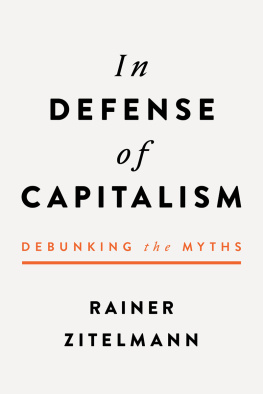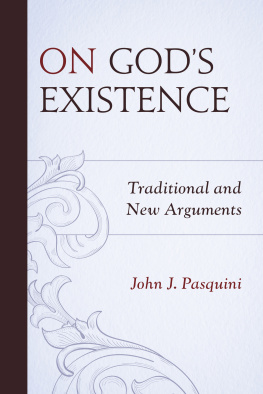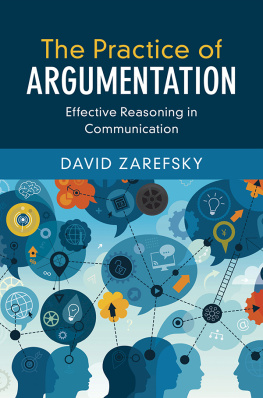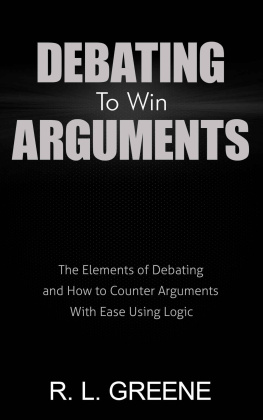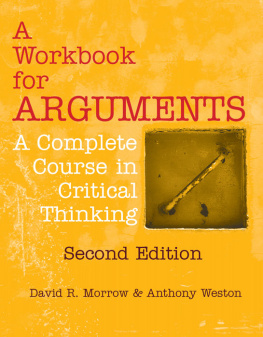DEBATING WAR
What arguments have critics of American wars and interventions put forward, and what arguments do they currently employ? Thomas Jefferson, Henry Thoreau, John Calhoun, the Anti-Imperialist League, Herbert Hoover, Charles Lindbergh, Martin Luther King Jr., and Ron Paul (among others) have criticized proposals to intervene in other countries, enter wars, acquire foreign territory, and engage in a forward defense posture. Despite cogent objections, they have also generally lost the argument. Why do they lose?
This book provides answers to these questions through a survey of oppositional arguments over time, augmented by the views of contemporary critics, including those of Ron Paul, Chalmers Johnson and Noam Chomsky. Author David J. Lorenzo demonstrates how and why a significant number of arguments are dismissed as irrelevant, unpatriotic, overly pessimistic, or radically out of the mainstream. Other lines of reasoning might provide a compelling critique of wars and interventions from a wide variety of perspectivesand still lose. Evaluating oppositional arguments in detail allows the reader to understand problems likely to be faced in the context of policy discussions, to grasp important political differences and the potential for alliances among critics, and ultimately to influence decision-making and Americas place in the international power structure.
David J. Lorenzo is Associate Professor in the College of International Affairs at National Chengchi University.
DEBATING WAR
Why Arguments Opposing American Wars and Interventions Fail
David J. Lorenzo
First published 2016
by Routledge
711 Third Avenue, New York, NY 10017
and by Routledge
2 Park Square, Milton Park, Abingdon, Oxon OX14 4RN
Routledge is an imprint of the Taylor & Francis Group, an informa business
2016 David J. Lorenzo
The right of David J. Lorenzo to be identified as author of this work has been asserted by him in accordance with sections 77 and 78 of the Copyright, Designs and Patents Act 1988.
All rights reserved. No part of this book may be reprinted or reproduced or utilised in any form or by any electronic, mechanical, or other means, now known or hereafter invented, including photocopying and recording, or in any information storage or retrieval system, without permission in writing from the publishers.
Trademark notice: Product or corporate names may be trademarks or registered trademarks, and are used only for identification and explanation without intent to infringe.
British Library Cataloguing in Publication Data
A catalogue record for this book is available from the British Library
Library of Congress Cataloging in Publication Data
A catalog record for this book has been requested
ISBN: 978-1-138-92688-2 (hbk)
ISBN: 978-1-138-92689-9 (pbk)
ISBN: 978-1-315-68204-4 (ebk)
My thanks to my colleagues at the College of International Affairs at National Chengchi University for their support for this project, especially Professor Ming Lee, Dean of the College; Professor To-hai Liou, Chair of the Department of Diplomacy; Professor Chung-chian Teng, Professor Ren-rang Chyou, and my research assistant Ashley Hsieh. I am also grateful to Professor Lucia Chen of the Graduate Institute of the Americas at Tamkang University and the participants in the conference Challenges to US Foreign Policy in the 21st Century held at Tamkang University on May 26, 2014 for their comments. I also wish to acknowledge the John Hopkins School of Advanced International Studies for a nonresidential fellowship at its Washington, DC campus during the summer of 2014. My thanks as well to my family for its support.
Some data contained in were first published in Opposition to the Libyan Intervention Among the American Public, Tamkang Journal of International Affairs, Vol. 17, No. 3 (2014). Parts of Chapter 7 were published as Noam Chomsky and Chalmers Johnson: Critical Views of American Foreign Policy, in Lucia Chen, ed., Challenges to US Foreign Policy in the 21st Century (Taipei: Tamkang University Press, 2014).
Introduction
First, many of you have asked, wont this put us on a slippery slope to another war? One man wrote to me that we are still recovering from our involvement in Iraq. A veteran put it more bluntly: This nation is sick and tired of war Many of you have asked a broader question: Why should we get involved at all in a place thats so complicated, and whereas one person wrote to methose who come after Assad may be enemies of human rights? Finally, many of you have asked: Why not leave this to other countries, or seek solutions short of force? As several people wrote to me, We should not be the worlds policeman.1
When Barack Obama went to the airwaves to make his case for a possible American military intervention in Syria in 2013, he joined a public debate over the necessity, utility and morality of interventions that has been ongoing for more than 200 years. Part of his contribution to that debate was his acknowledgment of objections to his proposal. Critics argued that the costs of intervention were too high; that interventions lead to unintended consequences that make the scene of interventions worse off, and that interventions reveal hubris on the part of the US, which cannot set the world right by using force.
This book is an exploration of such arguments in general. What arguments have opponents used over time? How should we understand them? How do those arguments fit within the frameworks of general policy and foreign policy debates? What relationship exists between those arguments and the successes and failures of the opposition?
Opposition to wars and interventions
Scholars have recently re-emphasized the observation that the US has a long history of foreign policy activism. The US did not suddenly turn to the world after WWII, an observation Walter Mead underlined in his influential book on American foreign policy traditions, Special Providence. Yet we also know that resistance to foreign policy activism has been alive for as long as activist policies have been around, a point once emphasized by Samuel Huntington during another era of vocal foreign policy criticisms.2 New England contemplated secession in the face of Madisons decision to confront Great Britain in the War of 1812. Thoreau went to jail in part to protest the war against Mexico. The declaration of war against Germany in 1917 was hotly contested by several members of the Senate. A variety of groups argued publicly against US involvement in the growing tensions in Europe during the 1930s. In the 1960s and 1970s, popular protests against the war in Vietnam dominated the news. More recently, major protests were launched against both Gulf wars, and Barack Obamas intervention in Libya was opposed by a majority of citizens and heavily criticized.3
Exploring these arguments can potentially yield interesting conclusions and shed light on important topics. Why have opponents often failed to stop interventions? What explains their sporadic successes? The fact that an often substantial opposition to particular military interventions has often been overridden creates an important puzzle for those who place hope in Kants original argument that republics will be less likely to use violence internationally because citizens will restrain aggressive leaders. Could the nature of oppositional arguments play a role in the failure of critics to restrain the government?


